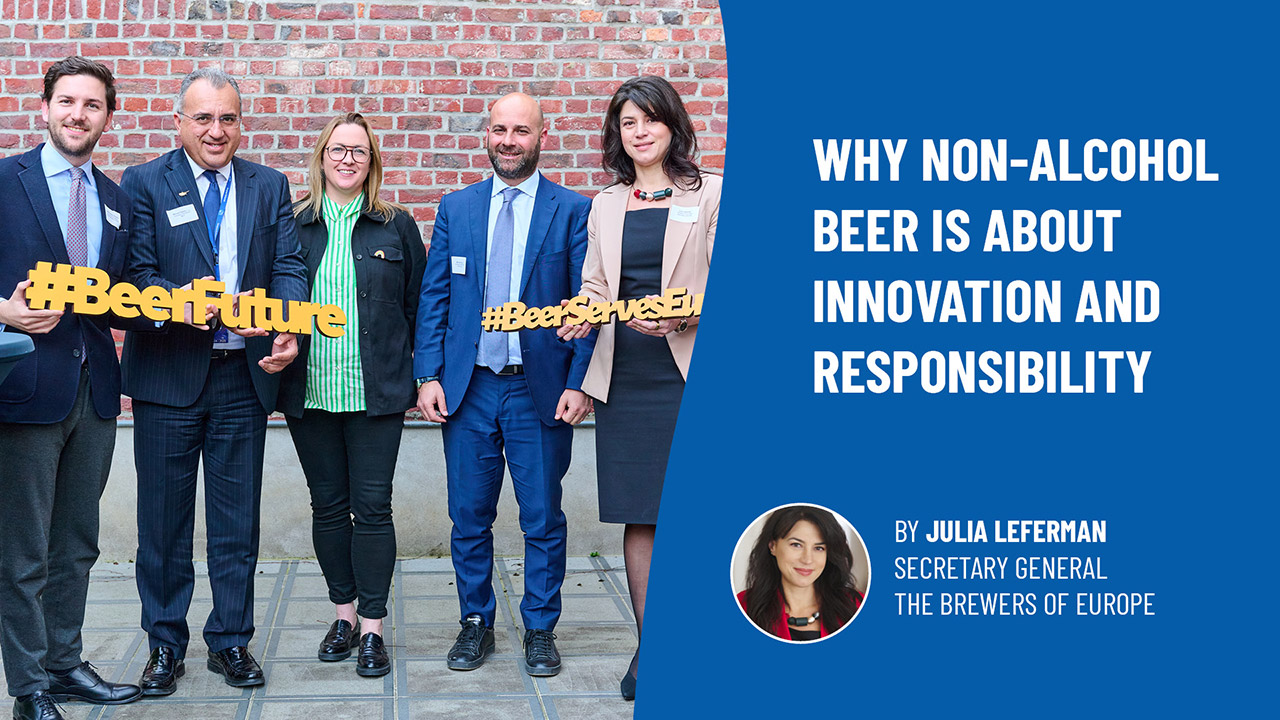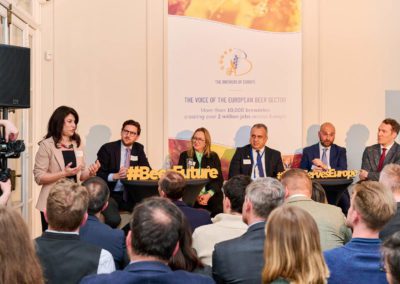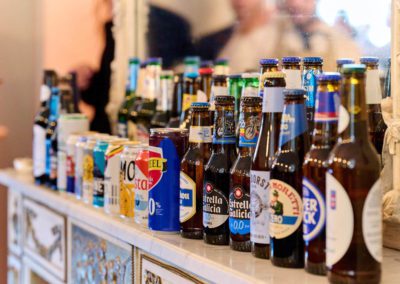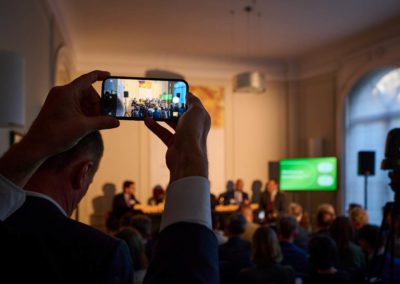Last week, we were delighted to host a special event at The Brewers of Europe House in Brussels, No reasons required – Moderation and the role of non-alcohol beer, in collaboration with Heineken.
The event was a powerful reminder that no alcohol doesn’t mean no excitement, no flavour or no ambition. Quite the opposite. It is about innovating to produce brilliant new beers.

After my opening remarks we had a panel debate that included MEP Michalis Hadjipantela, MEP Michele Picaro, Jules Macken (Heineken Director of Global Brand Strategy), Eduardo Olmedo Samperio (Cerveceros de España’s Deputy Secretary General) and Jack Parrock, journalist.
As I said at the event, while the past decade has been challenging for the beer industry, one of the bright spots has been the growth in non-alcohol beer’s popularity. One in 15 beers consumed in the EU is now a non-alcohol beer – or 2.2 billion litres of non-alcohol beer every year. Brewers are committed to moderation, through their actions and their product, and have a key role to play in the discussion around effective alcohol policies. Policymakers have a role and, dare I say it, a duty to ensure a policy framework that allows brewers to thrive and innovate sustainably, prosperously and responsibly.
The discussion that followed brought brewing representatives together with policymakers to explore non-alcohol beer, one of the fastest-growing and most dynamic corners of our craft. The consensus: this is not just a trend — it’s a movement.
And a standout theme of the night was the importance of inclusion and accessibility. Non-alcohol options aren’t just about moderation — they’re about making beer culture more welcoming to more people. Whether someone’s cutting back, doesn’t drink, or just wants a second round without the buzz, these brews offer a seat at the table without compromise.
Jules Macken said that gestures like making non-alcohol beer available on tap have helped to normalise it. She also underlined that most drinkers of non-alcohol beer are already beer drinkers, debunking suggestions that it is a ‘gateway’ drink. “There is no evidence that it is recruiting young people. This is no Trojan Horse,” she said.
Michele Picaro said that brewers across Europe are working hard to innovate to meet the changing consumer habits. “If we truly want to sustain Europe we need to support sectors like beer that are investing in sustainability and moderation,” he said.
He was echoed by Michalis Hadjipantela, who said brewers should be encouraged to innovate. “We have to find incentives to help brewers. Policymakers should be partners with brewers. There should be an open discussion,” he said
Eduardo Olmedo Samperio spoke about how in Spain, for so long THE reference market for non-alcohol beer growth, 1 out of 7 beers is non-alcohol. He stressed: “This is a huge message for the economy and culture. It’s truly a positive development!”
The debate was followed by food and drinks – with no fewer than 37 different non-alcohol beer brands available, with various styles and from across Europe. It was also the on-tap Belgian debut for Heineken 0.0. And on that note I wish to thank the company for helping to make this event happen!
It was a truly inspiring evening, and one that showed brewers are leading the way with their innovations.
Cheers!
Julia Leferman
Secretary General
Julia.leferman@brewersofeurope.eu
ABOUT THE BREWERS OF EUROPE:
Based in Brussels, The Brewers of Europe brings together national brewers’ associations and companies from 28 European countries to support the united interests of Europe’s 10,000+ breweries. Our vision is to ensure a competitive, responsible and sustainable European brewing sector, creating shared value across the entire value chain and enriching European culture.



